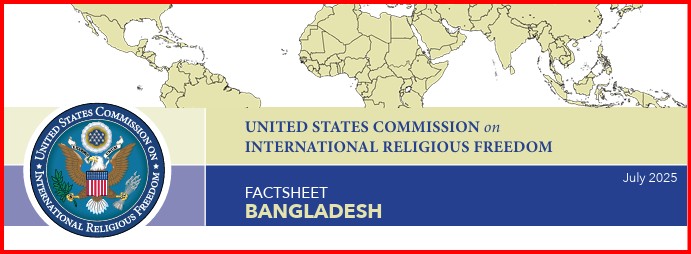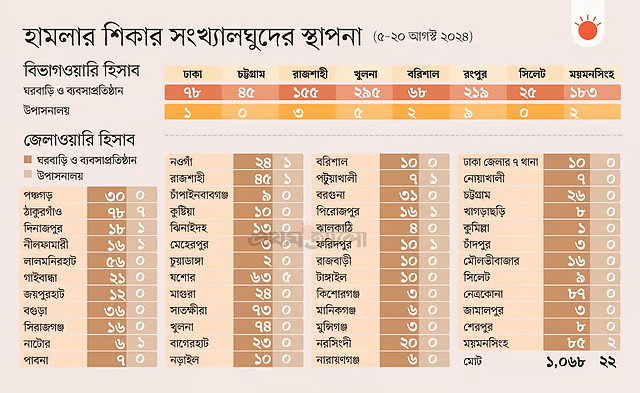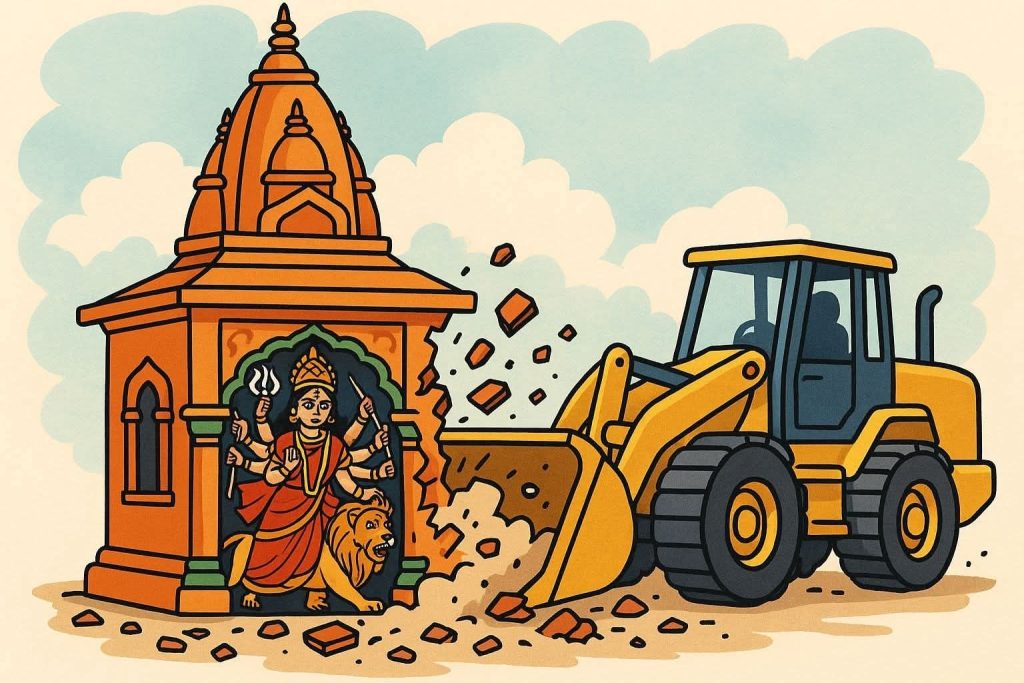The United States Commission on International Religious Freedom (USCIRF) has highlighted a troubling rise in attacks on religious minorities—particularly Hindus, Buddhists, and Sufi Muslims—during the post-coup power vacuum and under the military-backed interim government headed by Muhammad Yunus.

In a newly released factsheet, the USCIRF cited police data that reported more than 1,700 incidents of violence between August 5 and 20, 2024, including mob attacks, arson, destruction of temples, and forced displacement of Hindu families. “Fear among religious minorities remains pervasive,” the report stated.
The report also criticised the unlawful detention of Hindu leader Chinmoy Prabhu Das, who called for the interim government to offer protection from attacks and harassment.
Oikya Parishad: 27 killed, 20 raped in 258 violent attacks on minorities in 6 months
Factbox: Minority repression by Yunus government supporters neglected
Chinmoy Prabhu instigated, instructed murder of lawyer Alif, says chargesheet
“Throughout his public speeches and remarks, Chief Advisor Yunus has reiterated the importance of religious freedom in Bangladesh and a commitment to maintaining religious harmony. However, many individuals with whom USCIRF met during its delegation expressed concern about their safety and ability to express their faith openly.

“Some religious minorities and Muslim women emphasised that they continue to face societal-level discrimination from more hardline Islamic groups, and they emphasised that attacks along religious lines, while sporadic, continue.
“Religious minorities further expressed fears about potential violence during elections, which they anticipate will fall along religious lines, and concern about a lack of representation in the current government. All religious minorities should be able to practice their beliefs without fear of attack or retribution,” said the factsheet.
The Commission also raised alarms over the constitutional reform process initiated in October 2024. The minority groups have criticised their near-total exclusion from decision-making. Only one Hindu and one Buddhist are currently represented in the interim cabinet.
Report: Minority persecution in Bangladesh since July 2024
Women’s rights reforms have also sparked backlash from hardline Islamic factions, such as Hefazat-e-Islami and Jamaat-e-Islami.

The USCIRF also noted that Bangladesh’s legal framework—including the controversial Cyber Security Act and blasphemy laws—continues to be used to silence dissent and criminalise speech deemed offensive to religious sentiments.
The situation for indigenous communities in the Chittagong Hill Tracts remains dire, with communal violence, land seizures, and attacks on Buddhist temples continuing into 2025. The Ahmadiyya Muslim community also faced renewed persecution, including attempted mob lynchings and denial of burial rights.
The Rohingya refugee crisis has worsened, with over one million displaced people still living in squalid conditions. A tragic maritime incident in May 2025 led to the deaths of more than 400 Rohingya refugees at sea.
With national elections expected between December 2025 and June 2026, the USCIRF warned that the reinstatement of Jamaat-e-Islami and legal uncertainties surrounding the Awami League could further inflame communal tensions.
“The future of religious freedom in Bangladesh will depend heavily on whether the interim government can ensure inclusive reforms and prevent electoral violence,” the Commission said.
The USCIRF recommended that US policymakers continue to engage with Bangladesh’s leadership to promote religious tolerance, minority rights, and accountability for sectarian violence.